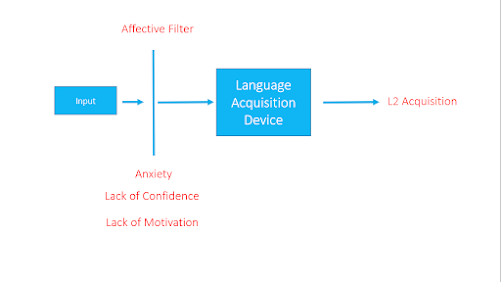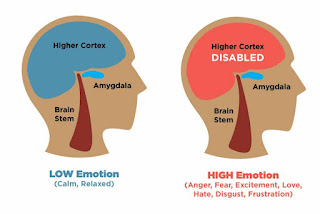Understanding IPM (Information Processing Model) in a Practical Context
Affective filter is one of the IPM (Information Processing Model) elements proposed by Stephen Krashen. The input hypothesis proposed by him include five features: acquisition-learning, natural order, monitor, comprehensible input, and affective filter. This writing is, however, mainly focused on the affective filter point.
My students, who are studying English as a second language, inspired me to recall this point and I see the importance of introducing this idea to them. One of their questions was concerned about the language learning barrier, or the contributing factors to why language learning does not take place. It is understandable since the language learning assessment was done as their self-reflection to their language learning achievement. When I asked them "How good you are at listening, speaking, reading, and writing". Their responses indeed vary. One is good at listening, reading, writing, and speaking. But none of them claimed that they are competent in those four skills.
The following part illustrates how the given question is actually related to the following IPM notion.
Based on our conversation, most of students are anxious about their language competence, in speaking class for instance. Most of them are still worried about grammatical rules, pronunciation accuracy, speaking fluency, or direct feedback while speaking. The lecturer already offered tremendous opportunities to them to use English extensively. Since their anxious feelings dominate their mental state, that contributes to students' hesitance to voluntarily share their weekend stories in front of the class.
Lack of confidence and motivation problems occupied the students' mental states. Being closed to direct feedback or making grammatical errors indicate the level of the students' confidence. Simultaneously, I asked them how often they spend their time to expose to English text, out of academic assignment, such as reading English news or listening to English reportage. Most of their responses are 2 of 5, it is rated.
What we can say from that data and information processing model is that there is a strong correlation between mental states or the building block of the acquisition or learning. Once the students build, and it is almost unconsciously, a higher building block, the lower of the possibilities to have a higher acquisition. In contrast, the lower the mental block that the students build, the higher their acquisition will be. Even though human is equipped by natural device in their brain, called LAD, it, however, plays very much less important role to process the language.
Once we are informed of how the language processing takes place, considering the mental state conditions is also important. This is because this will be likely to alter our perspective and approaches to language acquisition or learning. This post allows everyone to do self-learning reflection to maximize the potential language learning outcome.
What we can do dealing with that problem? Again, based on our conversation, a number of learning approaches can be taken to enhance English proficiency. Practice and motivation are fundamental to make language learning at maximum peak. Investing thirty to sixty minutes daily to practice listening, reading, speaking English is believed to help their English improved. Once it is not, the affective filter is getting higher, LAD can be difunctional, and no improvement in language learning.



Comments
Post a Comment